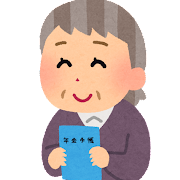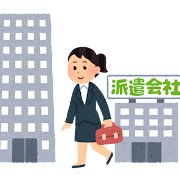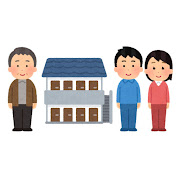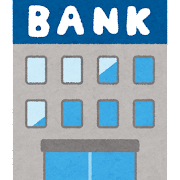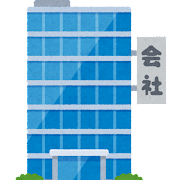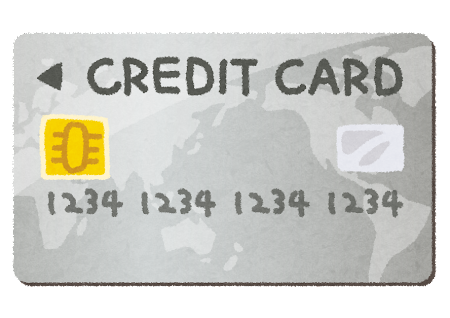How to write an application of a credit card
2023.10.26

Foreign people tend to fail credit card screening more easily than Japanese people. One of the reasons is that some foreign people do not understand the meanings of words written in the application form. Let’s learn the meanings of words and get a credit card!
Personal Information
You have to write your personal information as your name and occupation. Let’s check one by one.
- 氏名(しめい Shimei)
氏名 means name. Please write your name. When writing a name, Japanese has some rules. I will introduce them one by one.
姓(せい Sei)
姓 means last name. 姓 is written in Kanji, so those who have Kanji’s name write your name in Kanji.
名(めい Mei)
名 means given name. 名 is written in Kanji, so those who have Kanji’s name write your name in Kanji.
セイ (せい Sei)
セイ means last name. セイ is written in Katakana, so please write your name in Katakana. If “Sei” is written in Hiragana (like せい), please write your name in Hiragana.
メイ(めい Mei)
メイ means given name. メイ is written in Katakana, so please write your name in Katakana. If “Mei” is written in Hiragana (like めい), please write your name in Hiragana.
ローマ字 (ろーまじ Romaji)
In the column that says Romaji, you write the pronunciation of your name by Alphabet. In the column of 「姓」, please write your last name, and in the column of 「名」, please write your given name.
- 生年月日(せいねんがっぴ Seinengappi)
生年月日 means date of birth. Please write your year of birth before the letter 「年」, your month of birth before the letter 「月」, your day of birth before the letter 「日」.
- 年齢(ねんれい Nenrei)
年齢 means age. Please write your age before the letter 「才」or「歳」. If there is a letter 「満」, please write your age between 「満」and 「才」or「歳」.
- 性別(せいべつ Seibetsu)
性別 means gender. Application forms often have the choice 「男」or 「女」. 男 means male, and 女 means female. In addition to this, some application forms have the option 「その他」or 「答えたくない」. その他 means others, and 答えたくない means I don’t want to answer the question.
- 郵便番号(ゆうびんばんごう Yubinbango)
郵便番号 means postal code. Please write your postal code. Normally, there are seven blanks after the mark 「〒」.
- 住所 (じゅうしょ Zyusyo)
Zyusyo means address. Please write your postal code. The order is the prefecture, city, ward, chome, and house number. For example, write ○○県○○市○○区〇丁目○番○○.
- メールアドレス (めーるあどれす meruadoresu)
メールアドレス means e-mail address. This word is written mail address in Japanese way. Please write your e-mail address.
- 電話番号 (でんわばんごう denwabangou)
電話番号 means phone number. If there are two blanks「固定電話」and 「携帯電話」, please write your landline number in the blank of 「固定電話」and write your mobile phone number in the blank of「携帯電話」. If you do not have a landline, you do not have to fill in the blank of 「固定電話」.
- 職業 (しょくぎょう syokugyou)
職業 means occupation. There are some options to choose. This section is very important for passing the credit card screening. If you choose a different occupation from your true profession, you may fail the screening. Let’s learn the words for jobs and choose your occupation correctly.
一般企業(いっぱんきぎょう Ippankigyou)
一般企業 literally means a general company. It means you work in a company as a full-time worker. If you make a contract with the company where you work directly, please choose this option.
公務員 (こうむいん Koumuin)
公務員 means a civil servant.
学校 (がっこう Gakko)
学校 means school. If you work at school, please choose this option.
医療機関(いりょうきかん Iryokikan)
医療機関 means hospital or pharmacy. If you work in hospital or pharmacy, please choose this option.
自営業 (じえいぎょう Zieigyo)
自営業 means self-employed. Some credit card companies separate options between business owners and other self-employed people. In this case, the options in Japanese are like this: 「自営業(経営者)」「自営業(医師・弁護士・会計士等)」. 経営者 means company owner, and 医師・弁護士・会計士 means doctor, lawyer, or accountant. If these professions apply to you, please choose this option.
パート・アルバイト(ぱーと・あるばいと Pato・arubaito)
パート andアルバイトmean a part-time worker. Both are almost the same meaning. Generally, パート are mainly used when housewives and househusbands work, and アルバイト are often used when high school students and university students work. However, if you are a student and have a part-time job, please do not choose this option. When writing about a profession, if you are a student, please choose the “student” option even if you are working part-time.
学生 (がくせい Gakusei)
学生 means a student. If you are a student, please choose this option even if you have a part-time job.
年金収入 (ねんきんしゅうにゅう Nenkinsyunyu)
年金収入 literally means pension income. It means those who live by pension. In Japan, pension has three types: old-age pension, disability pension, and survivor’s pension. Please choose this option if you do not work and live by pension.
Please read below article to know more about pension system in Japan.
About pension system in Japan https://social-b.net/baiyu/en/pension20220214en/
主婦・主夫(しゅふ・しゅふ Syuhu・Syuhu)
主婦 and 主夫 means a housewife and a househusband.
派遣社員(はけんしゃいん Hakensyain)
派遣社員 means a temporary worker. He/She makes a contract with a temp agency and does not make a contract with the company you work in. When you apply to make a credit card, the credit card company checks your company whether you really belong to the company. Thus, knowing which company you make a contract with is very important. Please check which company you make a contract with, and please choose the correct option.
出向中 (しゅっこうちゅう Syukkotyu)
出向中 means to be on loan. This type of work is also different from the company you have a contract with and the company you work for. For the same reason I wrote in the description of the temporary employee, Please check which company you make a contract with, and please choose the correct option.
The difference of一般企業/派遣社員/出向中
一般企業:The worker makes a contract with the company where you work in.
派遣社員:The worker makes a contract with the temp company and works in another company.
出向中:The worker makes a contract with a company and works in another company.
不動産(ふどうさん Hudousan)
不動産 means real estate. If you live by real estate income, please choose this option.
自由業(じゆうぎょう Ziyugyo)
自由業 means a free-lance profession. For example, writers and artists.
その他(そのた Sonota)
その他 means others. Please choose this option if your occupation does not apply to any options.
- 副業(ふくぎょう Hukugyo)
副業 means a side job. If you have a side job, please mark 「有」 or write a check.
- 年収(ねんしゅう Nensyu)
年収 means annual income. Please do not include the money you happen to receive this year. Please write the amount of income you will receive regularly. For example, salary, pension, and real estate income.
家族構成(かぞくこうせい Kazokukosei)
家族構成 means family structure. When you apply a credit card, you may write it.
- 生計を同一とする家族/生計を一にする家族 (せいけいをどういつとするかぞく/せいけいをいつにするかぞく Seikeiwo douitutosuru Kazoku/ seikeiwo itunisuru Kazoku)
These words both mean family members who share income and expenses.
When asked about your family structure, you may be asked how many family members you share income, and expenses. For example, if you earn the most money in your family and have a partner and three children. In this case, the number of family members you share income, and expenses is five. Please include yourself. If your partner or your children work, please include them in the number unless they live on their own income alone.
- 世帯主との続柄(せたいぬしとのつづきがら Setainusitonotudukigara)
世帯主との続柄 means the relationship with the head of the household. If you live with your family and the head of the household is your father or your mother, please write 「子」. 子 means a child. If you live alone, the head of the household is you, even if you live by remittance.
住居形態(じゅうきょけいたい Zyukyokeitai)
住居形態 means residential forms.
持ち家(もちいえ Mochiie)
持ち家 means owned house. If you own a house, please choose this option. When you choose this option, you must write whether you have a mortgage. If you do not have it, please choose 「住宅ローンなし」. If you have it, please choose 「住宅ローンあり」and write how much mortgage is left if necessary.
持ち家(配偶者所有)(もちいえ はいぐうしゃしょゆう Mochiie Haigusya syoyu)
This option means that your partner owns a house. If you live with your family and they own a house, please choose this option. If you have to write how much mortgage is left, please write 「0円」or choose 「住宅ローンなし」even if your partner or parents have it. This is why you do not pay for it.
賃貸(家賃支払いあり)(ちんたい やちんしはらいあり Chintai Yachinshiharai ari)
賃貸 means to rent a house. This option means you rent a house and you pay the fee by yourself.
賃貸(家賃支払いなし)(ちんたい やちんしはらいなし Chintai Yachinshiharai nashi)
If you live in a rental house and your parents pay the fee, please choose this option.
- 居住年数(きょじゅうねんすう Kyozyunensu)
居住年数 means the number of years of residence.
口座情報(こうざじょうほう Kozazyouhou)
口座情報 means the information of your bank account.
- 金融機関名(きんゆうきかんめい Kinyukikanmei)
金融機関名 means the name of the bank. Please choose the name of the bank you resister.
- 支店名(してんめい Shitenmei)
支店名 means the name of the branch where you open your bank account. It is written in the bankbook. Also, you can know your branch name by searching the branch number on the cash card. Please note that ゆうちょ銀行(Japan Post Bank) has a branch number in Chinese numerals.
- 口座番号(こうざばんごう Kozabangou)
口座番号 means bank account number. It is written on a bankbook and a cash card. ゆうちょ銀行(Japan Post Bank)use a unique system, and the numbers which are written on a bankbook and a cash card are not the bank account number. If you use ゆうちょ銀行, please use the below website and find your number by searching the number written on your bankbook or cash card.
https://www.jp-bank.japanpost.jp/kojin/sokin/furikomi/kouza/kj_sk_fm_kz_1.html
- 氏名(しめい)
The name which is registered as the bank account owner.
勤務先に関する情報(きんむさきにかんするじょうほう Kinmusakinikansuruzyouhou)
This means the information of your workplace. If you are a student, please write your school information.
- 勤務先の名称(きんむさきのめいしょう Kinmusakino meisyo)
This means the name of your workplace.
- 勤務先の住所(きんむさきのじゅうしょ Kinmusakono zyusyo)
This means the address of your workplace.
- 勤務先の電話番号(きんむさきのでんわばんごう Kinmusakono denwabangou)
This means the phone number of your workplace. After applying for a credit card, the card company calls your company and checks whether you really work in the company for identity verification.
カード情報 (かーどじょうほう Cado zyouhou)
In addition to your personal and workplace information, you have to choose the type of credit card and decide details by yourself.
- 申し込むカードの種類 (もうしこむかーどのしゅるい Mousikomu kadono syurui)
Credit card companies often issue many kinds of credit cards. Whether there is an annual membership fee, privileges, and services are different depends on the type. Please choose the type of credit card you want to apply surely.
- 暗証番号(あんしょうばんごう Ansyobango)
暗証番号 means pin number. You can decide it. If you forget it, you cannot use your credit card. Please be sure to remember your pin number.
- 限度額(げんどがく Gendogaku)
限度額 means the amount of limit. You can decide it on a monthly basis. If you do not use money a lot, set a lower amount, and it will be easier to pass the screening.
- キャッシング枠 (きゃっしんぐわく Kyassinguwaku)
Some credit cards allow the owner to borrow money. You can choose whether borrow money by a credit card, or set the amount of money you can borrow per month. If you apply this system, the credit card screening tends to be strict. If it’s not absolutely necessary, please choose 「無」 or set the amount of money 「0円」.
There are unfamiliar words in credit card applications and you may be puzzled. If you write it by halves because you don’t understand the meaning, you may fail the screening and be unable to make a credit card. Let’s understand the meaning of words written in the application and get a credit card!
- Please also refer to the following page.
How to write a medical questionnaire at a hospital in Japan
https://social-b.net/baiyu/en/medical-questionarrie20221126en/
About pension system in Japan https://social-b.net/baiyu/en/pension20220214en/
Words used in Payment Slip (Kyuyo meisai)
https://social-b.net/baiyu/en/payment-slip20020611en/
- If you have further inquiries, please feel free to ask questions from the link below.
https://social-b.net/baiyu/en/question-box/










